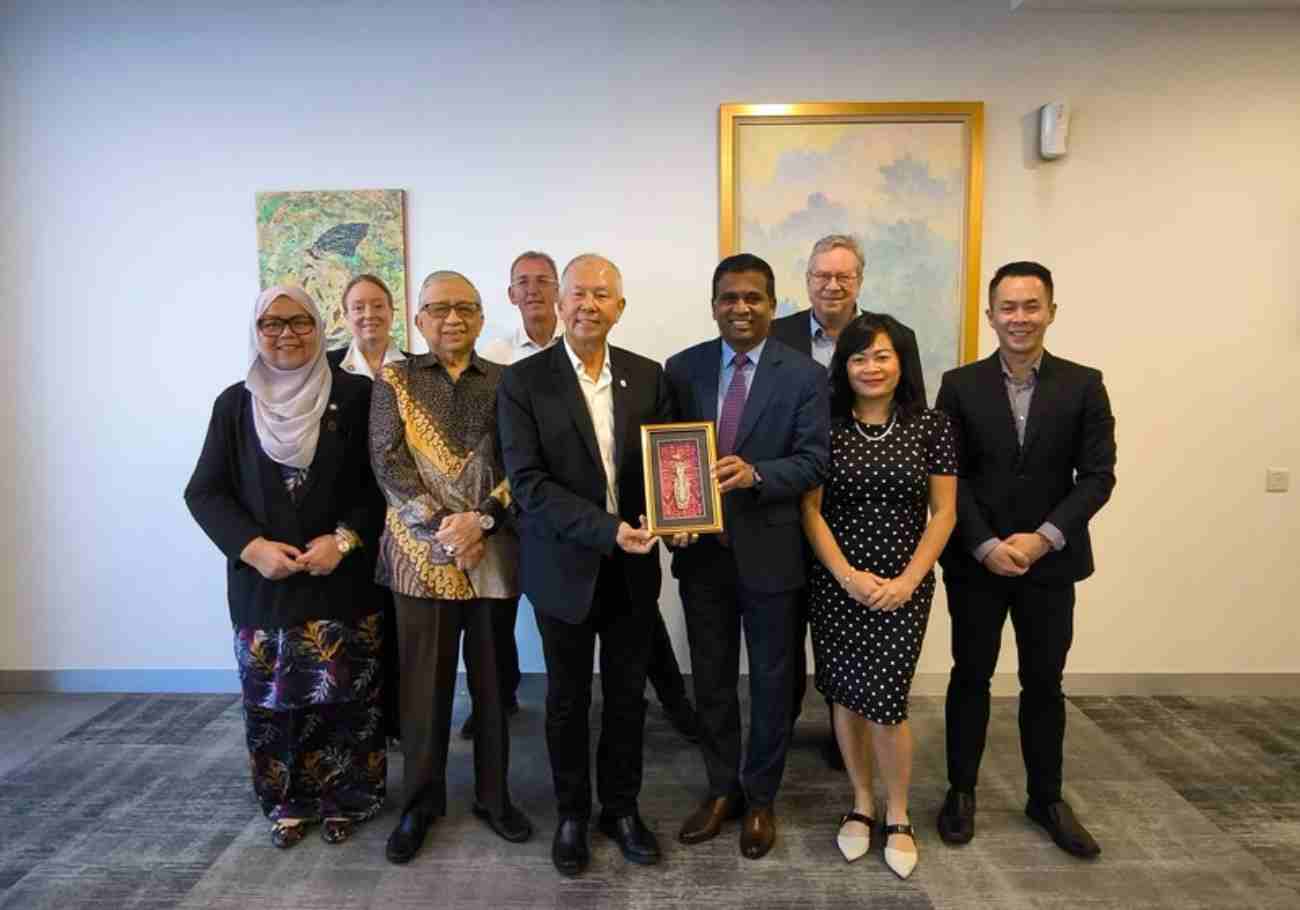The Minister of Health was reported to have congratulated the private healthcare sector for their economic performance and urged growth to gain a higher share of the medical tourism industry (Medical Tribune 1-15 September 2011).
Similarly the Economist in highlighting Penang wrote of the healthcare sector, quoting the Chief Minister and a hospital CEO proudly announcing the thousands of procedures performed in his centre (Malaysia’s Penang state – Getting back its mojo- available here).
It appears that politicians from all parties as well as private hospital administrators are viewing healthcare as an industry which can and should bring income and profits, the
more the better. Those thinking of healthcare as a source of revenue and profit forget that the higher the income of healthcare companies, the more patients have to spend, with the result that medical expenditure will go up and ill health increase in the community.
The doctor-patient relationship
Most people would avoid doctors and hospitals if possible, yet the truth is that from the time of birth till his death, a person will inevitably have to face the medical professional.
What a patient seeks most from the doctor is to be comforted, and if possible for the problem to disappear and not recur. In the past when medical science could do little to influence disease progression, the primary job of a doctor was to comfort. As technology
developed, doctors and patients sought to probe deeper into the source of the presenting problem with the aim to eliminate it.
This change in focus has led to an increased reliance on tests and technology, more use of drugs and devices and ultimately higher healthcare expenses.
Yet patients and doctors sometimes lose sight of the maxim that many of the problems of today such as hypertension, diabetes, heart disease or cancer are age and lifestyle related. These problems cannot be cured in the sense that the patient can be rid of them and do anything they wish.
Rather the aim is to control the problem to prevent bad outcomes (stroke, heart attack or hospitalisation) and hopefully to prolong life. Clinical trials and research evidence clearly show that trying to pin-point extent of disease and remove it will not make the patient safer or live longer. The BARI-2D trial showed that stenting/by-pass surgery will not make a stable coronary diabetic patient live longer or reduce cardiovascular clinical events compared to patients only on medical treatment.
Thus, looking for coronary obstruction as a routine first line of investigation should not be
encouraged in these patients. Similarly, the Centre for Disease Prevention in the United States has now raised doubts about the value of PSA as a routine screening test since not all patients with elevated PSA benefit from investigation for and treatment of prostate cancer.
Doctors must investigate patients not to look for more tests and procedures to perform, but only if it leads to action that can reduce future adverse outcomes.
There is no doubt that excessive investigative tests lie at the heart of increasing healthcare commercialisation and costs. The financial incentive may be a strong motivator for private hospitals and doctors to perform more tests and procedures.
In theory the patient can and should resist excessive tests but in practice marketing advertisements and subtle persuasion often result in the patients themselves requesting for these tests! Herein is the role of the government, health ministry and medical societies.
As ethical and professional guardians of medical practice, they should come out clearly and strongly for practice that will lead to reduced ill health, not practice for increased income. If the societal guardians laud and encourage commercial medical practice, healthcare costs, unethical acts and medical litigation will all rise.
On the other hand, if the ministry takes the lead in educating the public on how to protect their health, what tests to do and what to avoid, the many will benefit. The educated patient, by asking the right questions and choosing the correct doctor, can do much to ensure that medical practice stays ethical and competent.
Similarly, the ethical doctor with a long practice will ultimately earn more income than the charlatan who has to abandon his career prematurely. Academic research has borne out the truth of Warren Buffet’s philosophy that the road to wealth is paved with
honest ethical business practice.
The medical industry – drugs, devices and insurance
The medical industry has now developed to become a multi-billion dollar business, with pharmaceutical and medical device as well as insurance companies seeking to profit from their involvement in the patient-doctor interaction.
The United States, home of the largest of these companies, spends more on healthcare than any other country on earth, yet is 42nd in life expectancy and 72nd by overall level of health (among 191 member nations) in a study by the World Health Organisation. Yet many countries, including Malaysia, seem to be seeking to emulate the American healthcare system.
While doctors interested in health advancement look to reduce disease and improve health status, there is no doubt that the aim of commercial companies manufacturing drugs, devices or providing health insurance have as their overriding motive the aim to make a profit.
There is nothing wrong in seeking to earn reasonable profit from providing service or products. Capitalism has shown that society does get more prosperous when individuals are allowed to keep the fruits of their labour.
Yet in 2008, unregulated capitalism in the financial sector in the United States has resulted in job and home loss for many millions of Americans.
In 2007, according to Harvard University researchers, medical problems caused 62% of all personal bankruptcies. The more shocking finding is that 78% of these filers had medical insurance at the start of their illness, demonstrating that private medical insurance is not as comprehensive and protective as the patient thinks. This is not so surprising when one remembers that the less an insurance company pays out, the higher will be the retained profits.
Presently medical insurance has effectively spawned a system where the insurers tell doctors what can be done for their patients. The fate of patient now lies with an insurance employee who will dictate whether the patient will benefit from the drugs, procedure or surgery – not the doctor or the hapless patient! It has come to a level where decisions are made for the benefit of the insurer’s bank balance and not for the patient’s well being.
To add insult to injury, the patient is still required to pay for the policy and then the next time he renews his insurance cover, either the premium goes up or that particular disease is excluded from coverage.
Patients are covered not throughout their life, but only until 65 or 70 years of age. Thus, when a person will most likely require medical attention, insurance companies refuse to continue coverage having earned premiums and profit over the years when a person is least likely to need a payout.
Insurance companies negotiate with hospitals and doctors soliciting discounts and fee reduction. Healthcare providers are chosen not based on expertise or the wishes of the sick patient, but on strictly financial considerations with contracts given to the lowest bidders.
Can such a situation be good for the patient? Is it any wonder then that the United
States, where healthcare is almost wholly run by the insurance industry, spends the largest sums yet produces the worst health statistics in the developed world? The Malaysian government must institute laws to prevent acts of profiteering which ultimately hurt the long-term healthcare of our community.
While capitalism and the profit incentive are essential for human development, governmental regulation is necessary to prevent greed and dishonest business practices.
Again, the ministry of health has a vital and pivotal role as the regulator to ensure that practice remains ethical.
Approval given for drug or device use must be based on clinical scientific evidence. Insurance companies must not be allowed to resort to fine print in refusing claims or exclude the elderly and high risk since this would be giving them a passport to profit at the expense of the tax-paying public.
The ministry must thus always keep profit seeking private companies at arm’s length and interact on a strictly professional basis. The government should not be looking for such private companies to help upkeep its research projects or fund its educational programs.
In Malaysia, in 2008, the government is responsible for 78% of total hospital beds in the country and accounts for 74% of total admissions. Yet the government spends only 44% of the total healthcare expenditure in the country; private hospitals see only 26% of total admissions, yet use up 56% of total healthcare spending. It is thus clear that government hospitals are underfunded and overworked.
This leads to long waits and unsatisfactory service forcing patients to seek attention from private healthcare. If efficiency and service in the government hospitals improve, patients will not have to seek treatment from the expensive private sector.
Thus, the ministry of health should increase funding to present institutions and hospitals so as to improve the health of all in our community, rich or poor and not seek to compete with private centers for revenue and profit. By providing centers where efficient, competent and professional heath care is available at minimal costs, the ministry will ensure that private hospitals do not overcharge and upgrade their standards to stay commercially viable.
If ministry hospitals behave like private centres seeking profit, what will become of the large number of people unable to afford expensive healthcare?
Conclusion
Developments in the 1970’s when China abandoned its pursuit of poverty and in the 1990’s when Russia disintegrated have proven that in this 21st century capitalism appears to be the only route for national stability and advancement.
Then the world became engulfed in the American initiated housing and credit bubble, when unregulated pursuit of profit lead to dishonest practices that wrecked havoc on the world’s economy.
Unrestrained capitalism with its pursuit of selfish greed has proven to be as destructive
as unrestrained communism with its guaranteed waste and poverty.
Private hospital and doctors, by introducing competition and the right of patient to choose, does help promote competency, comfort and more personal care. Yet regulations are needed to discourage and punish dishonest practices. Private sector research has led the introduction of drugs, devices and procedures that has resulted in important medical advances.
Similar regulations and laws are needed to prevent the inappropriate promotion of products just to drive sales and profit. The ministry and government thus have a fundamental role to play as the regulating body and the enforcer of good moral work. We are fortunate that in Malaysia the ministry itself runs hospitals and clinics.
These must then become the model for competent, comfortable and correct medical care.
Instead of seeking to follow the private sector to pursue profit, the existence of public sector institutions then serve as the standard that the private sector will be forced to compete with. Only the public will benefit in such a scenario.
By Dr HT Ong, Past-President, Penang Medical Practitioners’ Society (PMPS)
Dr Haji AG Haniffah, Past-President, PMPS
Dr SP Palaniappan, Past-Chairman, Penang Branch MMA












